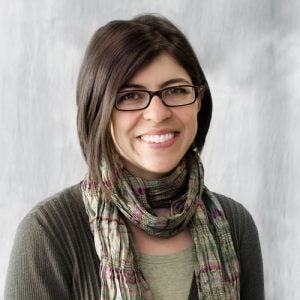Program combines multiple educational departments within the College
Health and health care are constantly evolving disciplines requiring highly trained, critical thinkers to solve some of society’s most important health-related problems. The College of Health Sciences is expanding its interdisciplinary approach to health care, bringing multiple departments together to offer a new Ph.D. program in Health Sciences.
The program focus is on health, wellness and quality of life across the lifespan. Faculty members and students will work together on research projects to solve important health-related problems through a mix of basic, applied and translational science. The program allows students the opportunity to gain experience in the various disciplines that make up the College of Health Sciences — including Communicative Disorders, Human Development and Family Sciences, Kinesiology and Nutrition and Food Sciences — and provides them with the opportunity for advanced content knowledge and in-depth training in one discipline or area of study.

“One of the goals for the future of this program is for it to be truly interdisciplinary,” said Associate Professor Alison Tovar, director of the program. “It’s a unique opportunity to bring together these different departments and tracks. Students from multiple programs will come together to help bridge these health disciplines.”
The unique, interdisciplinary program is geared toward students with a master’s degree in a related health field. All students will complete coursework, conduct research with their major professor, and write a dissertation related to their area of interest. Students will have access to the College’s cutting-edge research laboratories and clinics — some of which include the Healthy Feeding, Healthy Eating Lab; the Speech and Hearing Centers; Human Performance Laboratory; Bone Density and Cardiovascular Testing Laboratory; and Motion Capture/Virtual Reality Laboratory — helping them achieve breakthroughs in their research to make an impact in health care delivery.
“We know there are big societal challenges such as an aging population, obesity, health disparities, developmental disabilities. I think there is an urgent need for researchers and highly trained workforce leaders to protect and improve the health and wellness of the public,” Tovar said. “Careers in health sciences are really expected to see considerable growth over the next decade. We think we are well positioned to help train those future leaders.”
Students who complete the program can expect a variety of environments for potential employment, including in higher education, federal and state health agencies, and private health facilities. Potential employment positions include medical science liaison, research scientist, medical communications specialist, medical or health manager, and more.
To apply to the program, a minimum of 72 credit hours post-baccalaureate is required, including 18 credits for dissertation research. The application process is currently on-going. Log on to the program’s website to apply and for more information.
Graduate specialization groups students can choose include:
- Communicative Disorders: This specialization focuses in speech and language pathology. The doctoral program is designed to provide a formal course of training and advanced research in communication sciences and disorders that produces significant, original contributions to the professional discipline. Course work in research design, statistics and various out-of-department opportunities maximize the student’s ability to engage in original research and scholarship.
- Kinesiology: Focusing on exercise physiology, the psychology of physical activity, sport science and biomechanics, this specialization prepares the next generation of researchers, scholars, teachers and professional leaders in Kinesiology. This is done through formal coursework and through active engagement in research, research seminars and in professional meetings at the state, regional and international level.
- Human Development and Family Studies: Aimed at promoting the health and well-being of individuals and families, this specialization prepares scholars to define problems and conduct innovative and rigorous research that informs policies and practices. A central focus of the program is to develop skills to study the complex interplay of biological, developmental, interpersonal and contextual determinants that protect and/or compromise the health and well-being of individuals and families across their life course. The doctoral program emphasizes integration and critical evaluation of research as well as the use of sophisticated methodologies that advance prevention and intervention approaches to better the lives of individuals and families across multiple social contexts.
- Nutrition and Food Sciences: This specialization prepares the next generation of independent researchers, scholars, teachers and professional leaders who are able to advance nutrition science, spanning the overlapping disciplines of human nutrition, nutritional biochemistry, human physiology, and public health nutrition. The translation of this knowledge with respect to health, disease prevention and treatment is vitally important in today’s society. Students will gain and apply interdisciplinary knowledge to the diverse field of nutrition. Nutrition scientists who have a PhD can be involved in research, education, industry, community and public health, and/or clinical practice.

